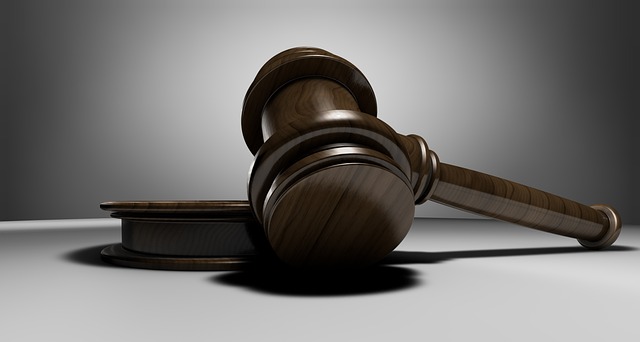Corporate Crime Investigations are vital for managing white-collar and economic crimes within complex corporate structures. Defending against libel claims presents a significant challenge due to high costs, including legal fees, expert witness expenses, and operational disruptions. Effective mitigation requires robust internal controls, thorough background checks, transparent governance, and proactive communication to protect against unfounded allegations. Regular audits of public disclosures and social media are crucial to prevent defamatory incidents from escalating into costly libel cases.
Corporate Crime Investigations are a critical aspect of ensuring business integrity and accountability. With increasing complexity in global markets, understanding these investigations is paramount for any organization. This article delves into the intricacies of corporate crime, exploring key areas such as legal implications, strategies to mitigate defamation risks, and notably, the significant financial burden associated with defending against libel claims. By examining these aspects, businesses can better navigate potential pitfalls and protect their reputation.
- Understanding Corporate Crime Investigations
- Legal Implications of Libel Claims in Business
- Strategies to Mitigate Defamation Risks
- The Financial Burden: Cost to Defend Against Libel
Understanding Corporate Crime Investigations

Corporate Crime Investigations are a complex and critical aspect of modern business risk management. They encompass all stages of the investigative and enforcement process, from initial suspicion to trial and subsequent penalties. These investigations delve into white collar and economic crimes, which often operate under the radar, hidden within the labyrinthine financial structures and reporting mechanisms of large corporations. The goal is not merely to penalize wrongdoers but also to deter future misconduct, restore integrity in the business sector, and protect the interests of stakeholders, including philanthropic and political communities.
Understanding these investigations requires a grasp of both the legal framework governing corporate conduct and the practical challenges inherent in pursuing white collar crimes. The cost to defend against libel claims, for instance, is a significant consideration for companies facing such investigations. Navigating this process demands specialized knowledge and expertise, ensuring that all parties involved are represented adequately throughout the entire procedure.
Legal Implications of Libel Claims in Business

The legal landscape surrounding libel claims in corporate crime investigations is complex and multifaceted. When businesses face allegations of misconduct or unethical practices, one of the potential pitfalls they may encounter is a libel suit. These cases can be particularly challenging due to the stringent legal standards required to prove defamation, with the onus often resting heavily on the plaintiff to demonstrate actual malice or reckless disregard for the truth. The consequences of losing such cases can be severe, including substantial monetary damages and irreparable harm to the company’s reputation.
The cost to defend against a libel claim is not insignificant, often involving significant legal fees, expert witness expenses, and time away from core business operations. Moreover, businesses must navigate the complexities of general criminal defense strategies while avoiding indictment across the country, which can vary greatly based on jurisdiction. Effective risk management and proactive communication are key in mitigating these challenges, ensuring that companies maintain integrity while safeguarding against unfounded allegations.
Strategies to Mitigate Defamation Risks

In the realm of corporate crime investigations, mitigating defamation risks is paramount to protecting an organization’s reputation and financial health. One effective strategy involves proactive legal oversight and compliance programs. By implementing robust internal policies and training employees on ethical conduct and communication, companies can significantly reduce the likelihood of defamatory statements. Additionally, regular reviews of public disclosures and social media presence can help identify potential issues before they escalate into costly libel claims.
Beyond these measures, leveraging an unprecedented track record of achieving extraordinary results in jury trials has proven effective. Skilled legal teams with a deep understanding of defamation laws can swiftly address any incidents, negotiating settlements or presenting robust defenses that safeguard the company’s interests. This proactive and strategic approach not only mitigates financial losses associated with defending against libel claims but also fosters an environment of transparency and accountability within the organization.
The Financial Burden: Cost to Defend Against Libel

The financial burden of defending against libel claims in corporate crime investigations can be significant, posing a substantial challenge for organizations, especially those engaged in complex white-collar defense strategies. As legal battles unfold, companies often find themselves navigating a labyrinthine process that spans all stages of investigative and enforcement efforts across the country. This includes initial risk assessment, evidence collection, strategic planning, and ultimately, litigation.
The cost to defend against libel claims is multifaceted, encompassing not only legal fees but also potential reputational damage, lost business opportunities, and distraction from core operations. Organizations must allocate substantial resources to build robust internal controls, conduct thorough background checks, and implement transparent corporate governance practices to mitigate these risks effectively.
Corporate crime investigations pose significant challenges, particularly regarding libel claims and their associated costs. As seen throughout this article, understanding these implications is crucial for businesses aiming to mitigate defamation risks. By implementing robust internal controls, transparent communication strategies, and proactive legal consultations, companies can navigate these complex issues effectively. Remember that recognizing and addressing potential libel threats early on is key to avoiding the substantial financial burdens of defending against such claims.






